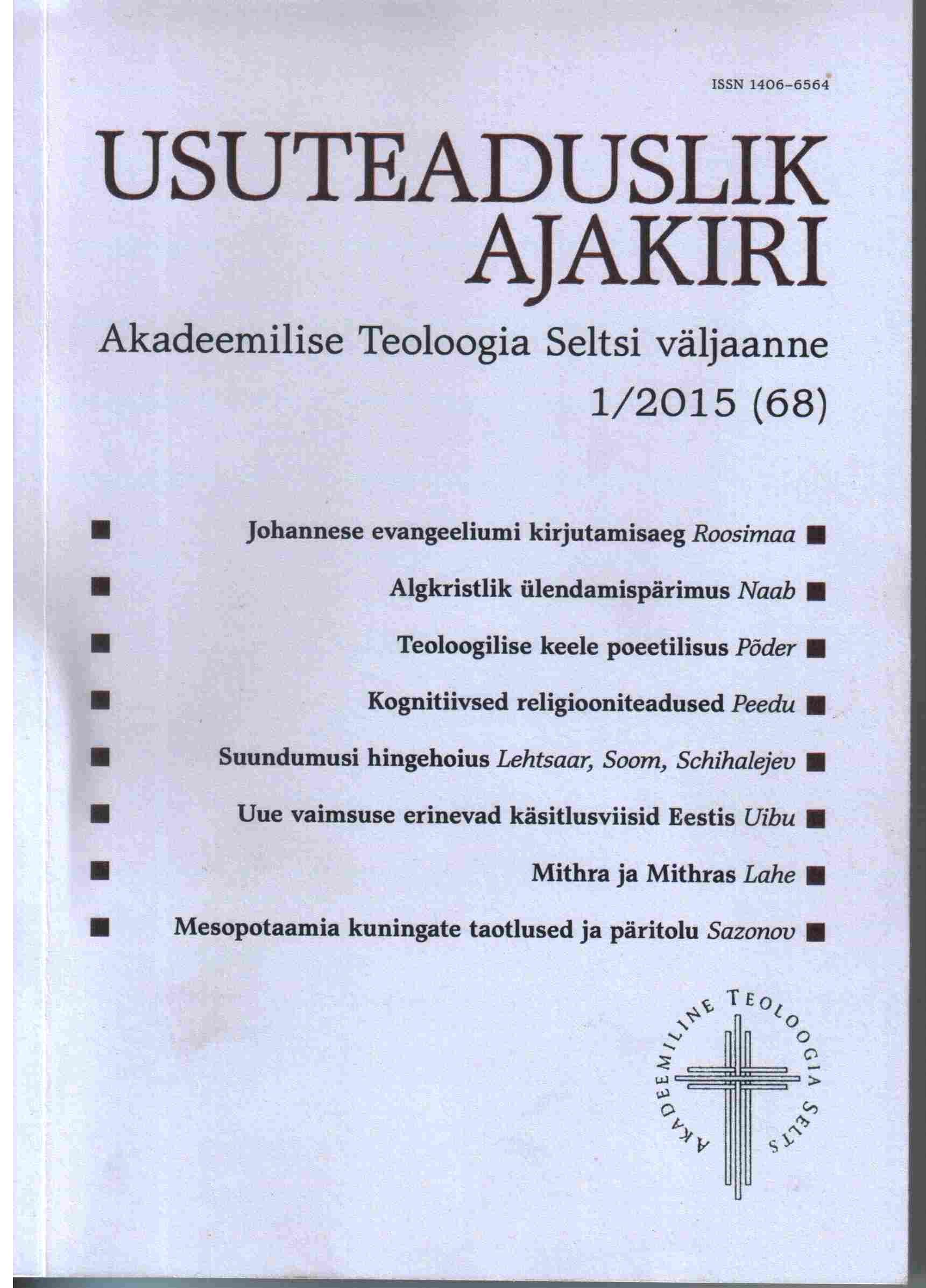Elu tõelise olemuse tunnetamine, moodsa aja religioon või umbluu - uue vaimsuse erinevad nimetamis- ja käsitlusviisid Eestis.
“Sensing the True Being”, “modern religion” or “Nonsense”: Naming and understanding of New Spirituality in Estonia.
Author(s): Marko UibuSubject(s): Christian Theology and Religion, Language and Literature Studies, Theology and Religion
Published by: Akadeemiline Teoloogia Selts
Keywords: Religious Studies
Summary/Abstract: With the decline of traditional institutional religions in the Western secular societies, religiosity has emerged in a variety of individualized forms. Contemporary manifestations of individualistic spirituality challenge the researchers to find the accurate terms and concepts to name and describe the phenomena. The article focuses on the questions related to the Estonian term for “new spirituality”. The study is based on the qualitative and quantitative survey material collected in 2014 using the internet questionnaire with 470 respondents, out of whom more than 96% were involved in spiritual milieu (e.g. practiced something spiritual like Reiki or meditation, or read spiritual books). Although the number of respondents who approved the term “new spirituality” was surprisingly high (56%), the qualitative analysis of people’s opinions reveals the reluctance to the naming of spirituality and the tendency to prefer very wide and existential terms like “life itself ”, “self-creation” or “true wisdom”. The respondents expressed strongly the opposition for categorizing spirituality as a religion (less than 9% agree that new spirituality could be called like that). People saw spirituality as natural and intrinsic to human beings whereas religion brought out negative connotations, e.g. as being violent, forced, too narrow, and oppressive. Evidently, naming is a strategy both for proponents and opponents of spirituality. Therefore, the study demonstrates that the terminology about contemporary spirituality is not an instrumental issue but indicates the complexity of changing religiosity itself and the battles over the social meanings and the position of spirituality.
Journal: Usuteaduslik Ajakiri
- Issue Year: 2015
- Issue No: 1 (68)
- Page Range: 99-121
- Page Count: 23
- Language: Estonian

